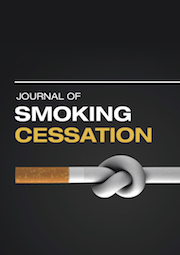Article contents
Quitting smoking using health issue-specific Social Networking Sites (SNSs): What influences participation, social identification, and smoking cessation self-efficacy?
Published online by Cambridge University Press: 09 August 2013
Abstract
Introduction: This study examined members of health issue-specific social networking sites (SNSs) for smoking cessation, applying Social Identity Theory (SIT).
Aims: The aim of the study was to test the relationships between perceived verbal, affective, cognitive and physical intimacy on the sites, participation level, social identification and smoking cessation self-efficacy.
Methods: An online questionnaire (N = 252) assessed members of SNSs for smoking cessation. Confirmatory factor analysis (CFA), structural equation modelling (SEM), mediation analysis, MANOVA and ANOVA tests were used to test the hypotheses.
Results/Findings: Verbal, affective, cognitive and physical intimacy significantly predicted participation; participation significantly predicted social identification and smoking cessation self-efficacy; and social identification mediated between participation and smoking cessation self-efficacy. Active participants and lurkers differed significantly on perceived verbal, affective, cognitive and physical intimacy, social identification, and smoking cessation self-efficacy.
Conclusions: Health issue-specific SNSs for smoking cessation have a positive impact on members’ smoking cessation self-efficacy. Higher perceived intimacy facilitates participation online, which in turn influences smoking cessation self-efficacy, with social identification mediating this relationship.
Keywords
- Type
- Articles
- Information
- Copyright
- Copyright © The Author(s), published by Cambridge University Press on behalf of Australian Academic Press Pty Ltd 2013
References
- 5
- Cited by


